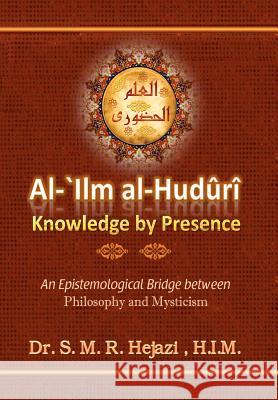al-`Ilm al-Huduri: Knowledge by Presence » książka
al-`Ilm al-Huduri: Knowledge by Presence
ISBN-13: 9781453779040 / Angielski / Miękka / 2012 / 192 str.
This book explores the issue of knowledge by presence as an epistemological problem in philosophy. Al-Ilm al-Huduri (knowledge by presence) deserves as an epistemological bridge between philosophy and mysticism. This book is a comparative study of the epistemology of Suhrawardi and Mulla Sadra Shirazi, two Muslim thinkers of the 6th/12th and 11th/17th century. It focuses on two main issues: Illuminative theory of knowledge and, in the framework of this theory, Mulla Sadra's doctrine of knowledge by presence (al-'ilm al-huduri) studied in the context of his philosophical system (al-hikmah al-muta'aliyah). Mulla Sadra's multidimensional methodology is also discussed in this book. The aim of this study is to explore the Mulla Sadra's theory of knowledge by presence, al-'ilm al-huduri, and examine it as an epistemological bridge between philosophy and mysticism within the context of Mulla Sadra's philosophical system (al-hikmah al-muta'aliyah). Hence, Mulla Sadra's doctrine of knowledge by presence is the corner stone of his epistemological system. In the light of this doctrine, he gives a new definition of knowledge, an innovative interpretation of its division into al-'ilm al-huduri and al-'ilm al-husuli, and, finally, a systematic chain of various kinds of knowledge by presence (e.g., self-knowledge, God's knowledge of His Essence and God's knowledge of things). These three aspects of his doctrine have been surveyed and, in comparing them with Suhrawardi's theory, evaluated in this book.
Zawartość książki może nie spełniać oczekiwań – reklamacje nie obejmują treści, która mogła nie być redakcyjnie ani merytorycznie opracowana.











